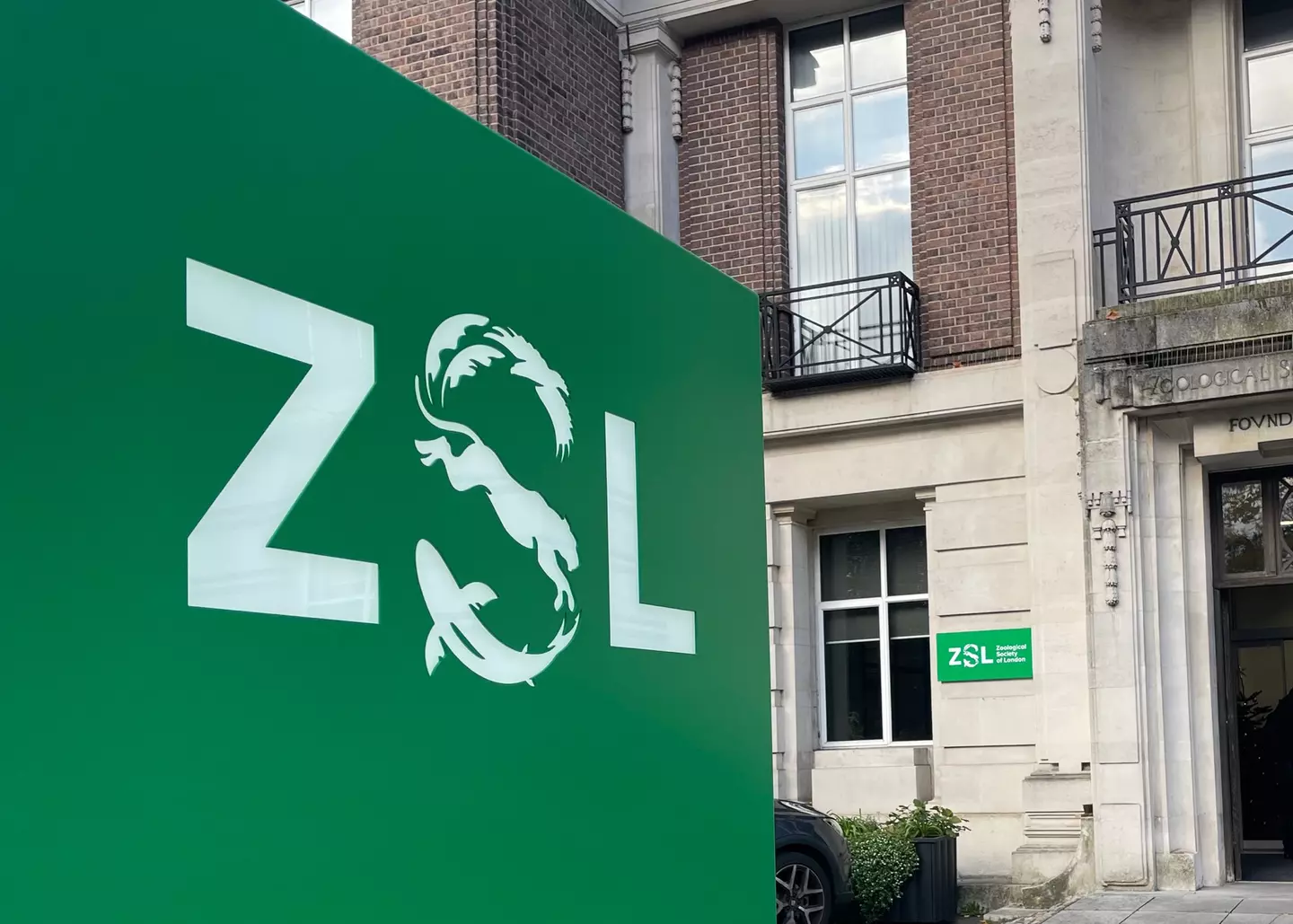Ecological balance of the world is maintained through the evolution of the scientific research, animal conservation and the preservation of the natural ecological systems. These are in an effort to preserve the biodiversity, conservation of the endangered species and also to preserve the ecosystems which are essential to the human beings as well as the animals. Conservationists conduct innovative research, habitat restoration, and sustainable intervention in the attempt to counter such problems as illegal trade, deforestation, and climate change. The global community is yet to perfect the concept of combining fieldwork and technology and data-driven approaches to make sure that nature is maintained so that it would be accessible to the future generations and help them to learn more about the complex interrelationship that exists between things that are found in the natural world.
The Zoological Society of London (ZSL) is one of the most known conservation organizations in the world since its foundation in 1826 and is dedicated to the conservation of wildlife and the habitats in which they live by conducting innovative research, practical fieldwork, and community involvement. It runs the well-known London Zoo and Whipsnade Zoo that not only hosts the world activities on biodiversity but also where the animals are nurtured and taught. ZSL is the foremost zoological society which conducts pioneering research, recreates ecosystems and saves endangered species in more than 50 nations using its Institute of Zoology. ZSL is a pioneer in a world where people and wildlife can coexist with science and conservation.
1. Wildlife conservation leadership: ZSL is an organization that advocates the protection of endangered species and restores important habitats in over 50 countries.
2. Cutting-edge scientific research: The Institute of Zoology undertakes ground-breaking research to address global environmental challenges.
3. Education and public awareness: Millions of people are educated about the meaning of biodiversity, sustainability and animal welfare at the zoos in London and Whipsnade.
4. Involvement of the global community: ZSL can offer local communities environmentally friendly and human-centered sustainable solutions.
5. Technological innovation in conservation: ZSL designs innovative tools to track wildlife and fight illegal trade and wildlife habitat threats.
ZSL Impact and Expertise – Driving Global Wildlife Protection Through Science, Education, and Innovation
ZSL mission is strongly enshrined in conservation of global diversity by incorporating science, conservation and education. The two large zoos namely the London zoo and the Whipsnade zoo are learning and innovation centers in addition to being animal viewing centers. These locations are used to conserve important global programs, give practical experiences to educate the masses and to aid breeding programs of endangered species. ZSL welcomes people to conserve and represent wildlife by providing fascinating exhibitions, live shows, and educational activities.
With field teams operating in a wide variety of locations, including tropical forests and coastal wetlands, the effects of ZSL conservation activity extend beyond the zoo to continents across the globe. Their scientific arm, Institute of Zoology is conducting groundbreaking studies on population tracking, environmental change and wildlife health. ZSL, as well, resorts to the latest technologies, such as video traps, satellite tracking, and AI-based data analysis, to attain more successful conservation results. Such a holistic model that integrates direct action and cross-border collaboration allows ZSL to take the lead in effective and sustainable solutions to a future where people and wildlife can thrive.

Safeguarding Asia’s Rarest Big Cats – ZSL’s Mission to Protect Endangered Sumatran Tigers
It is also attempting to conserve the very endangered Sumatran Tiger, which is among the rarest big cats that can only be found in the island of Sumatra in Indonesia. ZSL also has field conservation projects where it partners with communities, local government officials and international partners to overcome habitat loss, poaching and human-wildlife conflict. To make sure these great creatures can have a future in the wild, the group monitors tiger population, encourages anti-poaching patrols and the development of sustainable land management via a science-based approach.
1. Surveys on tiger population and movement are conducted through camera traps.
2. Energizes SMART patrols to identify and prevent the poaching.
3. Works with the neighboring communities to curb human tiger conflict.
4. The habitats of tigers are restored and preserved through sustainable land-use planning.
5. The supporters of the stricter laws and policies on wildlife crime.
Support ZSL’s mission to save Sumatran tigers and help secure a future for wildlife in Asia.

Preserving a Vanishing Giant – ZSL’s Conservation Efforts for Mongolia’s Wild Camels
ZSL is also carrying out critical conservation work to save the Wild Bactrian Camel which is the largest mammal on earth, and most threatened, and found in the barren deserts of China and Mongolia. These camels are endangered and are less than a thousand in the wild due to their bad habitat, poaching, and competition with the domesticated cattle. ZSL partners with local people and conservation partners to offer field research, habitat protection and community based solutions that promote coexistence of wildlife and people to ensure their future.
1. Carries out population surveys to check the population as well as movement of Wild Camels.
2. Fosters the education of rangers and the anti-poaching measures in the desert territory.
3. Enhances habitat conservation by using sustainable ways of land utilization.
4. Includes the neighboring herding communities in the conservation plans.
5. Increases the awareness of the world about the acute situation with the wild Bactrian camel and the necessity to act immediately.

Securing a Future for Giants – ZSL’s Fight Against Poaching of the Black Rhino
ZSL is resolute to address the devastating consequences of poaching and habitat loss in Africa to ensure that the Black Rhino survives since it is a critically endangered animal. The illegal wildlife trading has made the Black Rhinos highly endangered because most of these species are at the verge of extinction as there are less than 6,000 of these animals roaming freely in the wild. ZSL observes the number of rhinos, viable anti-poaching strategies and ensures that they survive long term, through management of the habitat, in partnership with governments, local communities and other international partners.
1. Tracks movement of rhinos using the latest tracking gadgets to offer security.
2. It finances anti-poaching patrols and ranger training in high risk spots.
3. Includes the communities in the area to enhance the conservation of the rhinos.
4. Preserves and rehabilitates the rhino habitats which are valuable within the protection limits.
5. The supporters also affected the enactment of more animal protection laws and the reduction in the demand of rhino horn across the globe.
Support ZSL’s efforts to protect black rhinos and help end poaching before it’s too late.

Thriving in the Harshest Lands – ZSL’s Conservation Initiatives in the World’s Deserts
A fifth of the area on the surface of the earth is Desert habitats and it is in these habitats that species have evolved in order to live in very harsh environments. ZSL is putting a lot of efforts to conserve such ecosystems. Such delicate ecosystems are getting overwhelmed by overgrazing, resource exploitation and climate change. ZSL deals with the restoration of the ecosystem, biodiversity protection, and the population living on the Desert resources. Uniting all the academic studies with the practical ones, ZSL aims at stabilizing the Desert ecosystems and wildlife on the long-term.
1. To monitor the risks and the wellbeing of the population, monitors abandon species.
2. Develops sustainable grazing with the communities.
3. It repairs damaged habitats to help in the rehabilitation of wildlife.
4. Researches climate resilience in order to preserve the Desert.
5. Environmentalists seeking to have their policies altered to conserve delicate Desert landscapes.
Help ZSL protect the world’s deserts and ensure the survival of their remarkable wildlife.

Uncovering Ocean Secrets – ZSL’s Marine Science Work in the Indian Ocean
The main purpose of the marine science in the Indian Ocean is to learn and preserve the rich but fragile ecosystems of the area supporting millions of people and numerous species. ZSL studies and works in partnership to examine the impact of pollution, over fishing and climate change on coral reefs, mangroves and seagrass habitats. To attain the long term ecological stability, these initiatives are geared towards sustainable use of marine resources, community based management and policy guidelines on conservation.
1. Monitors are used to observe the change in biodiversity and bleaching of coral reefs.
2. Traces and significant mangroves and seagrass habitats.
3. Encourages sustainable practices of regional fisheries.
4. Trains coastal communities in management and marine conservation.
5. Collaborates with governments to give recommendations on the marine policy and conservation initiatives.

ZSL Legacy in Action – Championing Wildlife Conservation Across Land, Sea, and Science
ZSL is a global leader in conservation, using the most up-to-date science alongside nearly 200 years of zoological expertise to work to save the most threatened species on earth. The ZSL has managed to maintain its influence on the future of biodiversity conservation with its world-famous zoos, new fieldwork and innovative research. It is rooted in profound ecological knowledge and motivated by a long-term effect, such as the Sumatran tiger and the black rhino, wild camels and coral reefs.
As an innovator in the sphere of habitat restoration, community engagement and global policy influence, ZSL operates in all continents and ecosystems. Wildlife coexists peacefully with humans even in the most endangered places due to its comprehensive approach. By sponsoring ZSL, people will help to ensure that the future of nature will be bright where nature will be the responsibility of everyone and not an option. Visit the official page to find out more, donate or become a member of the worldwide movement of wildlife protection.




















Leave a Reply